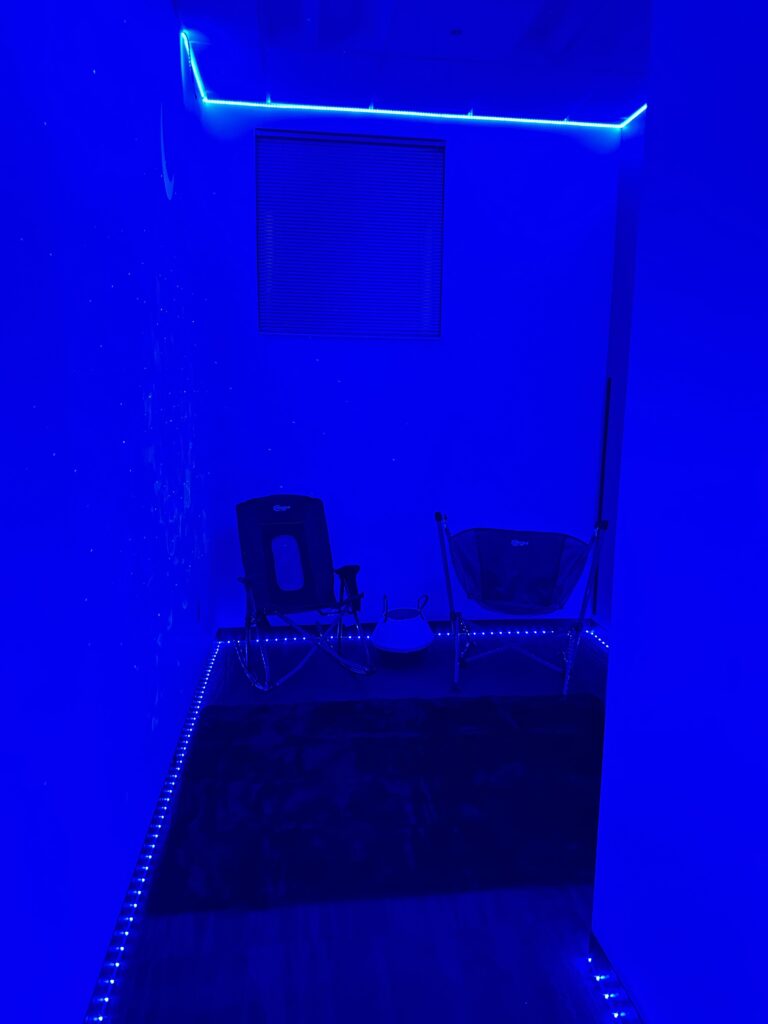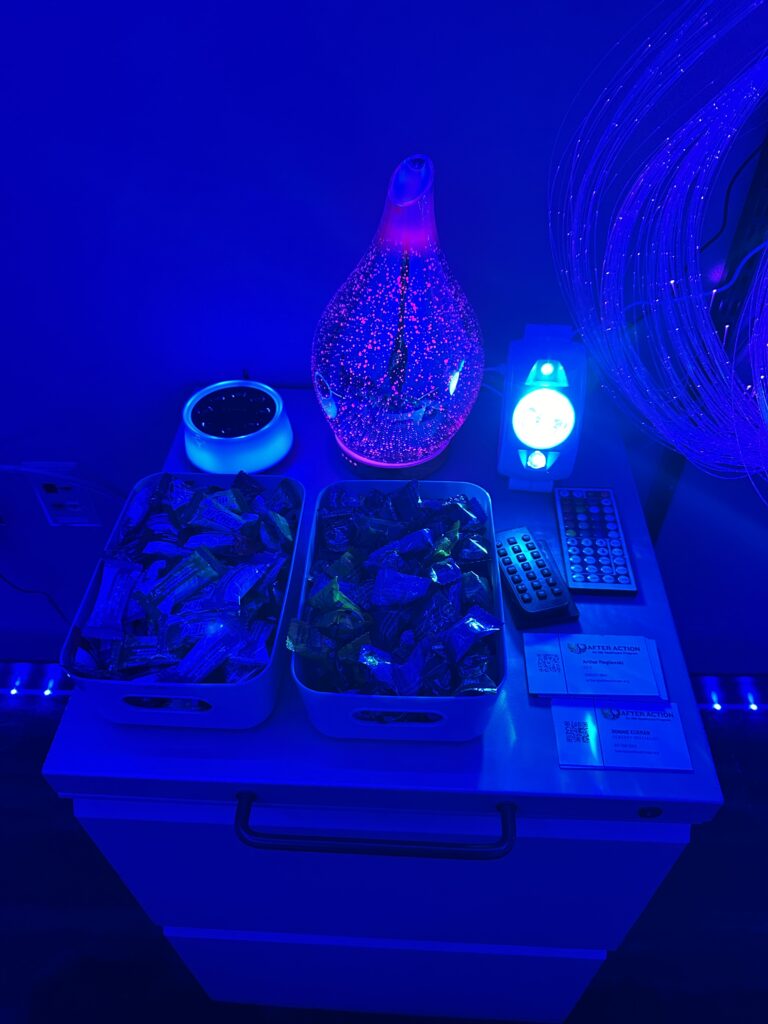ADHD and Stress Management: Tools for First Responders
3/6/2025 by Markie Bryant

First responders face unique challenges, particularly when it comes to managing ADHD in high-stress environments. Understanding ADHD stress management is essential for improving their job performance and overall well-being. This article dives into effective stress management techniques and innovative tools that can help first responders cope with ADHD, allowing them to thrive in their demanding roles
Key Takeaways
- ADHD can make it tough for first responders to focus and manage time, especially in high-pressure situations.
- Mindfulness and physical activity are great ways for first responders to handle stress and improve their mental health.
- Support from organizations, like flexible schedules and mental health resources, is vital for first responders with ADHD.
- Using technology like wearable devices can help reduce stress and improve focus for first responders.
- Building a strong support network can make a big difference in managing ADHD and stress effectively.
Understanding ADHD in First Responders
Common Symptoms and Challenges
First responders with ADHD often face unique challenges in their demanding roles. Key challenges include:
- Hyperfocus and Distractibility: While hyperfocus can help in critical situations, it may also lead to missing other important tasks. Distractibility can make it hard to concentrate, especially in chaotic environments.
- Impulsivity: This can lead to quick decisions that might not be safe, particularly in emergencies.
- Time Management Issues: Managing time effectively can be tough, resulting in missed deadlines or delays in responding to emergencies.
- Increased Stress and Anxiety: The high-pressure nature of their work can worsen ADHD symptoms, leading to heightened anxiety.
Impact on Job Performance
ADHD can significantly affect job performance for first responders. The combination of impulsivity, distractibility, and time management issues can lead to:
- Mistakes in critical situations
- Difficulty in following protocols
- Increased stress levels, which can further impair performance
Misconceptions and Stigma
There are many misconceptions about ADHD, especially in high-stress jobs like first responding. Some common myths include:
- ADHD is just an excuse for poor performance.
- People with ADHD cannot be effective in high-pressure roles.
- ADHD only affects children.
These misconceptions can lead to stigma, making it harder for first responders to seek help.
Importance of Early Diagnosis
Early diagnosis of ADHD is crucial for first responders. Recognizing symptoms early can lead to:
- Better coping strategies
- Access to appropriate resources and support
- Improved job performance and mental health
Understanding ADHD is essential for creating a supportive environment for first responders. By addressing their unique challenges, we can help them thrive in their roles while managing their symptoms effectively.
Stress Management Techniques for First Responders with ADHD
Mindfulness and Meditation
Mindfulness and meditation can be powerful tools for managing ADHD stress. These practices help first responders focus on the present moment, reducing anxiety and improving overall mental clarity. Here are some simple techniques:
- Deep Breathing: Take a few minutes to breathe deeply, inhaling through the nose and exhaling through the mouth.
- Guided Imagery: Visualize a calm and peaceful place to help reduce stress.
- Body Scan: Focus on different parts of your body, releasing tension as you go.
Physical Exercise and Fitness
Regular physical activity is essential for stress reduction and can significantly benefit first responders with ADHD. Exercise helps release endorphins, which improve mood and focus. Consider:
- Cardio Workouts: Activities like running or cycling can boost energy levels.
- Strength Training: Lifting weights can enhance physical and mental resilience.
- Group Sports: Engaging in team sports can foster camaraderie and support.
Healthy Eating and Nutrition
A balanced diet plays a crucial role in managing ADHD symptoms. Here are some dietary tips:
- Omega-3 Fatty Acids: Found in fish, these can improve brain function.
- Whole Grains: Foods like brown rice and oats provide steady energy.
- Hydration: Drinking enough water is vital for maintaining focus and energy levels.
Sleep Hygiene and Relaxation
Good sleep is essential for first responder wellness. Here are some strategies to improve sleep:
- Consistent Sleep Schedule: Go to bed and wake up at the same time every day.
- Relaxation Techniques: Try reading or listening to calming music before bed.
- Limit Screen Time: Reduce exposure to screens at least an hour before sleep.
Remember, managing ADHD and stress is a journey. Finding the right combination of techniques can lead to better focus and overall well-being.
By incorporating these coping strategies, first responders can enhance their ability to handle stress and improve their performance in high-pressure situations. Utilizing focus tools and engaging in Sensory Modulation Therapy at After Action can also provide additional support in managing ADHD symptoms effectively.
Effective Coping Strategies for ADHD and Stress
Time Management Skills
Managing time effectively is crucial for first responders with ADHD. Here are some strategies to help:
- Use a planner: Write down tasks and deadlines to keep track of responsibilities.
- Set timers: Use timers to break work into manageable chunks, allowing for short breaks in between.
- Prioritize tasks: Focus on the most important tasks first to ensure they get done.
Organizational Tools and Techniques
Staying organized can reduce stress and improve focus. Consider these tools:
- Digital apps: Use apps like Trello or Todoist to organize tasks and projects.
- Color coding: Assign colors to different tasks or categories to make them easier to identify.
- Declutter regularly: Keep your workspace tidy to minimize distractions.
Cognitive Behavioral Therapy (CBT)
CBT can be a helpful approach for managing ADHD and stress. It involves:
- Identifying negative thoughts: Recognize and challenge unhelpful thoughts that contribute to stress.
- Developing coping strategies: Learn techniques to manage stress and improve focus.
- Setting realistic goals: Break larger goals into smaller, achievable steps.
Support Networks and Peer Groups
Connecting with others can provide valuable support. Here are some ways to build a network:
- Join support groups: Look for local or online groups for first responders with ADHD.
- Seek mentorship: Find a mentor who understands the challenges of ADHD in high-stress jobs.
- Share experiences: Openly discuss challenges and successes with peers to foster a sense of community.
Building effective coping strategies is essential for first responders with ADHD. These tools can help manage stress and improve overall job performance.
Innovative Approaches to Mental Wellbeing for First Responders
Sensory Modulation Therapy for First Responders
One cutting-edge method After Action is providing to first responders for mental well-being is Sensory Modulation Therapy. This therapeutic approach helps individuals regulate their emotional and physiological responses by engaging the senses. For first responders with ADHD, managing stress and staying focused can be especially challenging in chaotic environments. Sensory Modulation Therapy offers practical tools—such as weighted blankets, calming visual aids, and tactile objects—that help reduce stress and promote emotional stability.
By using tailored sensory inputs, first responders can improve self-regulation, focus, and overall mental health. This approach empowers them to handle high-pressure situations with greater resilience, making it an invaluable tool for ADHD stress management.
For more details on this innovative therapy, visit After Action’s Sensory Modulation page.



Wearable Devices like TouchPoints
TouchPoints are wearable devices designed to help reduce stress and improve focus. They work by using gentle vibrations to calm the nervous system, which can be especially helpful for first responders facing high-pressure situations. These devices can:
- Reduce stress and anxiety
- Improve focus and attention
- Help manage impulsivity
Neurofeedback and Biofeedback
Neurofeedback and biofeedback are techniques that allow individuals to gain control over their brain activity and physiological responses. These methods can help first responders with ADHD by:
- Enhancing focus and attention
- Reducing anxiety and stress levels
- Improving overall mental well-being
Mobile Apps for ADHD
There are various mobile apps available that can assist first responders in managing ADHD symptoms. These apps can help with:
- Time management
- Task organization
- Mindfulness practices
Assistive Technology in the Workplace
Organizations can implement assistive technology to support first responders with ADHD. This can include:
- Task management software
- Communication tools
- Scheduling applications
By utilizing innovative tools and technologies, first responders can better manage their ADHD symptoms and enhance their performance in demanding situations. Training programs like the Marcus Alert aim to give first responders more tools for mental health strategies, ensuring they are well-equipped to handle their roles effectively.
Role of Organizations in Supporting First Responders with ADHD
Organizations can significantly impact the well-being of first responders with ADHD. Here are some key ways they can help:
Providing Education and Training
- Awareness Programs: Educating staff about ADHD can help reduce stigma.
- Workshops: Regular training sessions can promote understanding and empathy.
- Resource Distribution: Providing materials that explain ADHD symptoms and challenges.
Implementing Reasonable Accommodations
- Flexible Schedules: Allowing for adjusted work hours can help manage symptoms.
- Assistive Technology: Providing tools that aid focus and organization.
- Quiet Spaces: Creating areas where first responders can take breaks from noise and stress.
Promoting Mental Health Resources
- Access to Counseling: Offering mental health support can help first responders cope with challenges.
- Peer Support Groups: Encouraging connections among first responders can foster a sense of community.
- Self-Care Initiatives: Promoting practices like exercise and healthy eating can improve overall well-being.
Organizations that understand the unique challenges faced by first responders with ADHD can create a supportive environment that fosters success and resilience.
By taking these steps, organizations can help first responders not only manage their ADHD but also thrive in their demanding roles. Support from organizations is essential for the well-being of these individuals, ensuring they can perform their duties effectively and safely.
Personal Stories and Experiences
Challenges Faced by First Responders with ADHD
First responders often deal with unique challenges due to their high-stress environments. Many report feeling overwhelmed, especially when they have ADHD. Common issues include:
- Difficulty focusing during emergencies
- Increased anxiety in chaotic situations
- Trouble managing time effectively
Success Stories and Triumphs
Despite these challenges, many first responders with ADHD have found ways to succeed. For instance, some have shared how they use tools like mindfulness techniques to stay calm. Others have found that physical exercise helps them manage stress effectively. Here are a few success strategies:
- Utilizing organizational tools to keep track of tasks
- Engaging in regular physical activity
- Seeking support from peers and mentors
Lessons Learned and Advice
From their experiences, many first responders emphasize the importance of understanding their own needs. They suggest:
- Being open about ADHD with colleagues
- Seeking professional help when needed
- Finding a supportive community
Importance of Community and Belonging
Having a strong support network is vital. Many first responders express that connecting with others who understand their experiences helps them feel less isolated. This sense of community can be a powerful tool in managing both ADHD and stress.
Long-Term Wellness and Resilience
Building Mental Toughness
Building mental toughness is essential for first responders, especially those with ADHD. It helps them face challenges head-on and recover from stressful situations. Here are some ways to build mental toughness:
- Practice positive self-talk: Replace negative thoughts with positive affirmations.
- Set realistic goals: Break larger tasks into smaller, manageable steps.
- Embrace challenges: View obstacles as opportunities to grow.
Preventing Burnout and Compassion Fatigue
Burnout and compassion fatigue can affect anyone, but first responders are particularly vulnerable. To prevent these issues, consider the following strategies:
- Take regular breaks: Short breaks during shifts can help recharge your mind.
- Engage in hobbies: Spend time on activities you enjoy outside of work.
- Seek professional help: Don’t hesitate to talk to a counselor or therapist if needed.
Maintaining Work-Life Balance
A healthy work-life balance is crucial for overall well-being. Here are some tips to achieve it:
- Set boundaries: Clearly define work hours and personal time.
- Prioritize self-care: Make time for activities that promote relaxation and joy.
- Communicate needs: Share your feelings with family and friends to foster support.
Taking care of your mental health is not a luxury; it’s a necessity. Prioritizing wellness can lead to a more fulfilling life both on and off the job.
Continuous Learning and Development
Continuous learning helps first responders adapt to new challenges. Consider these approaches:
- Attend workshops: Participate in training sessions to enhance skills.
- Read books and articles: Stay informed about the latest research in mental health and wellness.
- Join support groups: Connect with peers to share experiences and learn from one another.
Conclusion
In summary, supporting first responders with ADHD is essential for their success and well-being. By raising awareness about ADHD and its effects, organizations can help reduce stigma and foster understanding. Providing accommodations, like flexible schedules and helpful tools, can make a big difference. Encouraging self-care through exercise, healthy eating, and good sleep habits is also vital. Additionally, offering mental health resources, such as counseling, can help first responders manage their unique challenges. Tools like TouchPoints can further assist in reducing stress and improving focus. By recognizing these needs and implementing supportive measures, we can ensure that first responders with ADHD have the resources they need to thrive in their demanding roles.
Frequently Asked Questions
What is ADHD and how does it affect first responders?
ADHD stands for Attention Deficit Hyperactivity Disorder. It can make it hard for first responders to focus, stay organized, and manage time. This can lead to challenges in their demanding jobs.
What are some common symptoms of ADHD in first responders?
Common symptoms include trouble concentrating, being easily distracted, impulsive behavior, and difficulty managing time.
How can first responders manage stress if they have ADHD?
First responders can use techniques like mindfulness, regular exercise, healthy eating, and good sleep habits to help manage stress.
Are there tools available to help first responders with ADHD?
Yes, tools like wearable devices, mobile apps, and assistive technology can help first responders manage their ADHD symptoms.
What role do organizations play in supporting first responders with ADHD?
Organizations can provide education about ADHD, offer accommodations like flexible schedules, and promote mental health resources.
Can personal stories help others understand ADHD in first responders?
Absolutely! Sharing personal experiences can raise awareness and help others see the challenges and successes faced by first responders with ADHD.